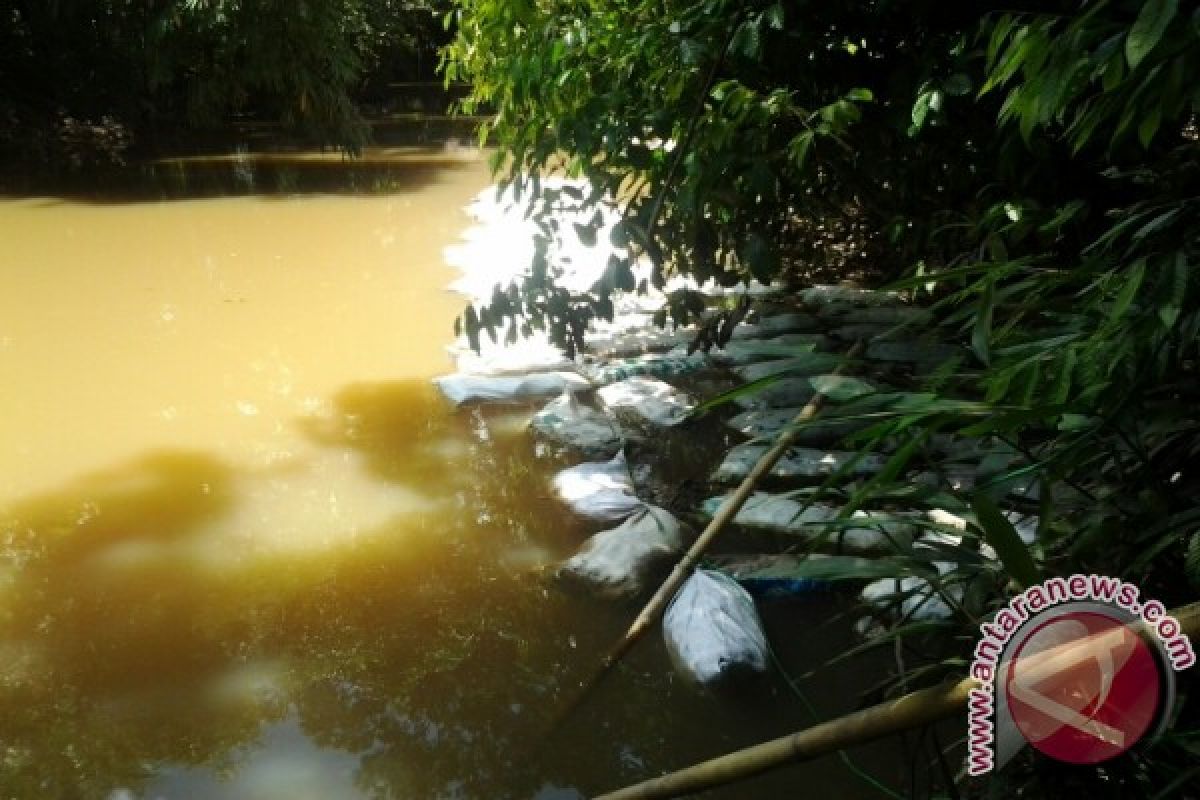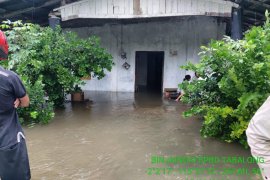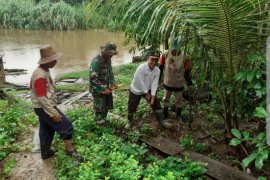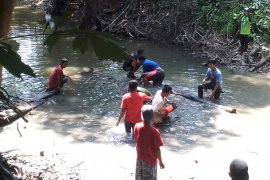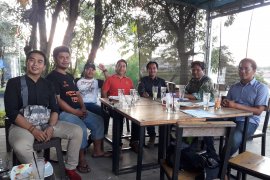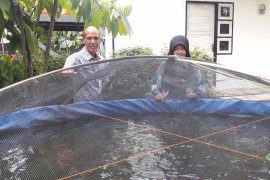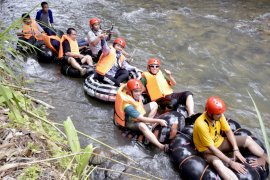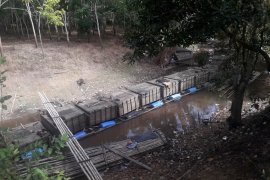Tanjung, S Kalimantan (ANTARA) - Head of Tabalong Environment Agency Rowi Rawatianice (left) at the of PPLH ULM Banjarbaru's research expose. (Antaranews Kalsel/Herlina Lasmianti)
The Lambung Mangkurat University (ULM) Banjarbaru's Center for Environmental Research (PPLH) found heavy metals iron (Fe) and manganese (Mn) content in the Tabalong River.
"The Fe and Mn pollutants in the research location were sourced from rain catchment area," head of the research center Mijani Rahman stated here at the hall of the regional secretariat.
Read also: Tabalong residents care their river for water quality
Read also: 2019 Pena Hijau award for S Kalimantan environment activists
Mijani in the expose from eight location of the research, at the upstream, downstream, and middle part of the river, accompanied three ULM researchers.
He explained that the capacity of the pollution load was exceeded including Biochemical Oxygen Demand (BOD) and Chemical Oxygen Demand (COD) caused by domestic waste from the residents.
Other member of the the research, Abdur Rahman, said the source of pollution also came from livestock, fishery and agriculture.
Read also: Waste disposal managed by villagers in Tabalong
The team then recommended an increase in critical land rehabilitation or land cover repairment at the rain cathment area through a joint program of the local government and private.
Including to inject people awareness to manage their own domestic waste so as not to dispose garbage to the river.
Read also: Seven Tabalong students receive Conch's scholarship to China
The expose of the research was attended by the District Secretary Abdul Muthalib Sangadji and Head of Tabalong Environment Agency Rowi Rawatianice, related agencies, and representatives of some companies.
According to Rowi, the result of the research became reference of her agency in the effort to recover the Tabalong River.


